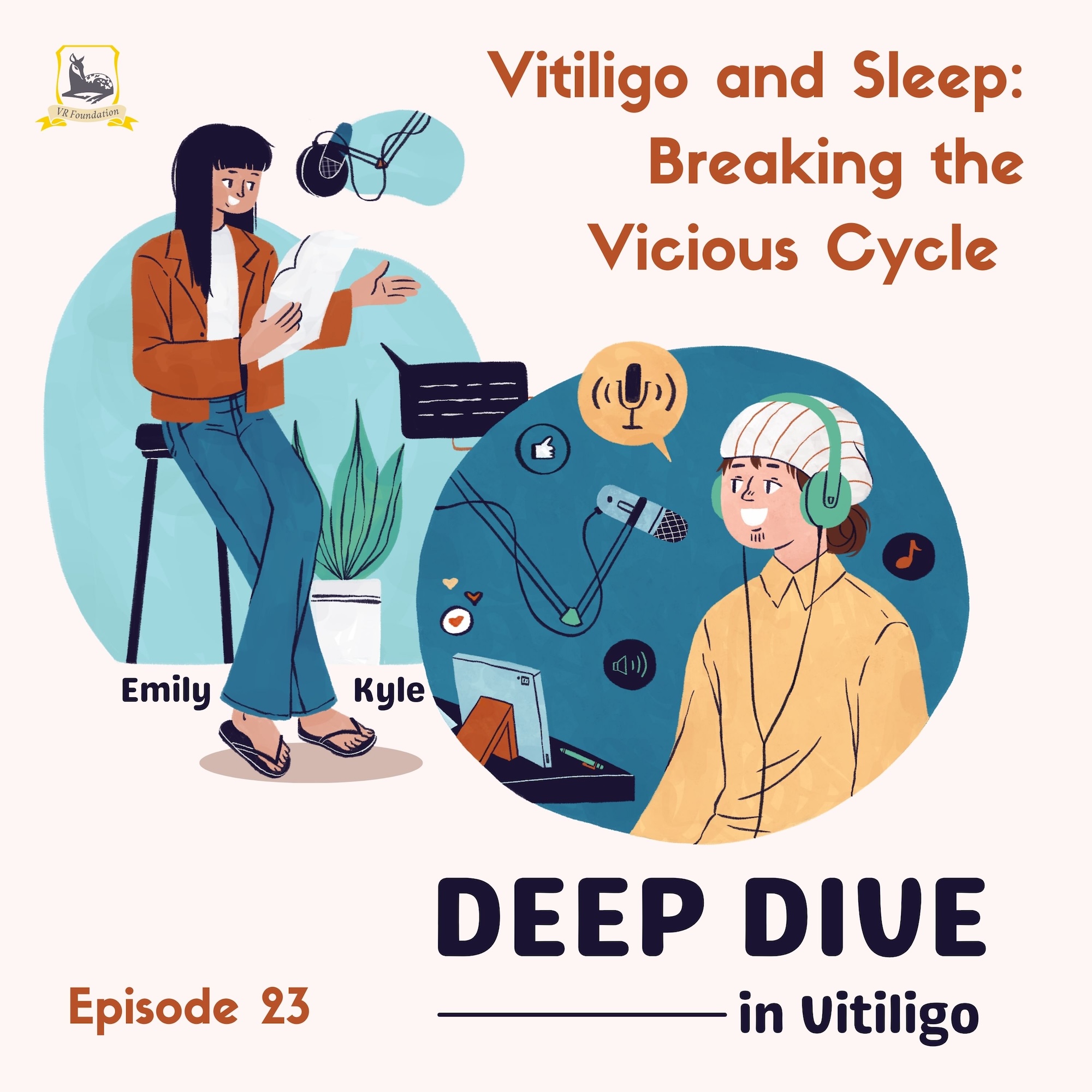Our work is entirely funded by private donations – we receive no money from government. Your money will help us continue funding research into vitiligo and supporting people affected by the condition.
Podcast
Vitiligo and Sleep: Breaking the Vicious Circle (Ep. 23)
Vitiligo is more than a skin condition—it affects identity, confidence, and emotional well-being. The stress and anxiety linked to vitiligo can disrupt sleep, creating a cycle of restlessness and fatigue. High cortisol levels from stress interfere with the sleep-wake cycle, while autoimmune inflammation and emotional distress worsen insomnia.
But what if breaking that vicious cycle could improve both mental health and skin healing?
In this episode of Deep Dive in Vitiligo, we explore how stress, inflammation, and mental health challenges contribute to poor sleep in people with vitiligo—and how we can fix this.
Join us as we uncover practical strategies to restore restful nights and regain control—not just over your skin but over your well-being, too.
Suggested reading:

FAQOther Questions
- Is it Bitiligo? Vitaligo? Veteligo?
There are so many different ways that people try and spell or even pronounce Vitiligo. Here are some common mis-spellings: bitiligo, vitigo, vitaligo, vitilago, vitiglio, vita...
- What's better: laser or phototherapy?
Laser therapy is actually a type of phototherapy. Both rely on light to trigger changes in the skin, but they work differently. Phototherapy usually means a narrow-band UV (NB-...
- What's the status with official recognition of World Vitiligo Day?
In 2016, the United Nations marked World Vitiligo Day in its International Calendar of Disability Events. However, it was removed in 2019 when the calendar was streamlined to 'M...
Though it is not always easy to treat vitiligo, there is much to be gained by clearly understanding the diagnosis, the future implications, treatment options and their outcomes.
Many people deal with vitiligo while remaining in the public eye, maintaining a positive outlook, and having a successful career.
Copyright (C) Bodolóczki JúliaBy taking a little time to fill in the anonymous questionnaire, you can help researchers better understand and fight vitiligo.